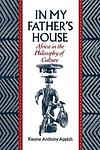The Greatest Ghanaian, Indian "Nonfiction" Books Since 1980
Click to learn how this list is calculated.
This list represents a comprehensive and trusted collection of the greatest books. Developed through a specialized algorithm, it brings together 300 'best of' book lists to form a definitive guide to the world's most acclaimed books. For those interested in how these books are chosen, additional details can be found on the rankings page.
Genres
Countries
Date Range
Reading Statistics
Click the button below to see how many of these books you've read!
Download
If you're interested in downloading this list as a CSV file for use in a spreadsheet application, you can easily do so by clicking the button below. Please note that to ensure a manageable file size and faster download, the CSV will include details for only the first 500 books.
Download-
1. Resources, Values And Development by Amartya Sen
"Resources, Values, and Development" is a comprehensive examination of the interplay between the availability of resources, the values that guide their use, and the resulting impact on development. The book challenges traditional economic measures of development, such as GDP, and argues for a broader understanding that incorporates human welfare and freedom. It delves into the role of ethics in economics, the importance of individual capabilities, and the need for equity in the distribution of resources. The author's influential ideas on development economics and social choice theory are presented, advocating for a more humane and inclusive approach to economic development that prioritizes the enhancement of human lives over mere economic growth.
-
2. In My Father's House by Anthony Appiah
"In My Father's House" by Anthony Appiah is a thought-provoking exploration of the complexities of African identity and the concept of cultural authenticity in a globalized world. Through personal anecdotes, historical analysis, and philosophical reflections, the author challenges essentialist notions of African culture, arguing for a more fluid understanding that embraces the diverse influences and hybridity of modern African societies. Appiah's nuanced perspective sheds light on the intricate interplay between tradition and modernity, and invites readers to question and redefine their own cultural identities.
-
3. Development As Freedom by Amartya Sen
The book in question is a seminal work in the field of economics and development studies, which argues that true development is best understood as the process of expanding the real freedoms that people enjoy. It challenges traditional indicators of growth, such as GDP, suggesting that they fail to capture the essence of human well-being. Instead, it posits that development should be assessed by the range of choices available to individuals, including access to education, healthcare, and the ability to participate in the economic and political life of society. The author emphasizes the interdependence of various types of freedoms, from political rights to economic opportunities, and the role they play in empowering people to live the lives they value.
-
4. Cutting The Rose by Efua Doorkenoo
"Cutting The Rose" is a gripping and thought-provoking novel that delves into the complexities of identity, culture, and the power dynamics within a Ghanaian community. Set in the 1960s, the story follows the life of a young woman named Akosua, who must navigate the expectations placed upon her as a woman in a patriarchal society while also grappling with her own desires and ambitions. Through vivid storytelling and rich character development, the author explores themes of tradition, love, and the pursuit of self-discovery in a changing world.
-
5. Interventions by Kofi Annan
This book is a compelling memoir and a detailed account of the diplomatic life of one of the world's most esteemed peacemakers. Through a series of engaging narratives, the author shares his experiences and the lessons learned during his tenure as the Secretary-General of the United Nations. He delves into the complexities of negotiating peace, fostering development, and promoting democracy across the globe, while also addressing the myriad challenges he faced, from conflicts and wars to global health crises and the fight against poverty. The author's insights into the intricacies of international diplomacy and his unwavering commitment to peace and justice make this work an invaluable resource for understanding the efforts required to sustain global harmony and security.
-
6. Delhi by Khushwant Singh
"Delhi" by Khushwant Singh is a captivating exploration of the city's rich history, culture, and people. Through vivid anecdotes and personal experiences, the author paints a vivid picture of Delhi's transformation from ancient times to the present day. From the Mughal era to British rule, and the struggles of Partition, Singh delves into the city's tumultuous past while highlighting its enduring charm. With a blend of wit and nostalgia, this book offers readers a delightful journey through the vibrant streets, monuments, and diverse communities that make up the heart of Delhi.
Reading Statistics
Click the button below to see how many of these books you've read!
Download
If you're interested in downloading this list as a CSV file for use in a spreadsheet application, you can easily do so by clicking the button below. Please note that to ensure a manageable file size and faster download, the CSV will include details for only the first 500 books.
Download




